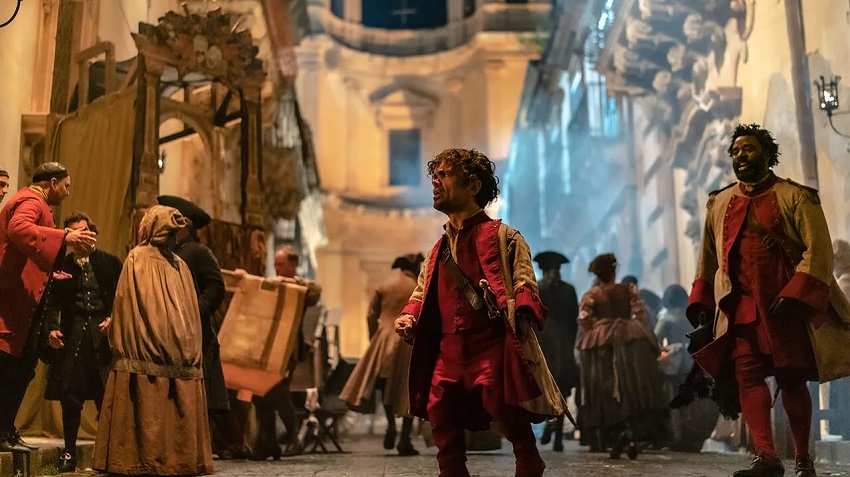
Theological themes may not be a notable element in Edmond Rostand’s play Cyrano de Bergerac, or in most screen adaptations, but Joe Wright’s showy musical version, starring Peter Dinklage—adapted for the screen from her own stage play by Dinklage’s wife, Erica Schmidt, with songs by members of the indie rock band The National—is an exception. With the transposition of Cyrano’s familiar rhinological affliction into Peter Dinklage’s achondroplastic dwarfism, it makes sense that when Cyrano turns his wit against himself in the process of humiliating a rival, a novel theme emerges of disappointment in or anger at God.
This bitter religious angst echoes from the first verse to the final line of Cyrano’s opening number (“When I Was Born”)—but takes an unexpected turn in the devastating ballad “Wherever I Fall.” Sung by three anonymous guards (the first is Glen Hansard of Once) at the Siege of Arras writing farewell letters to loved ones, it expresses peace and resignation in extremis, but it’s also replete with religious ideas, including allusions to the theological virtues of faith, hope, and charity, and, implicitly, belief that love is stronger than death.
A few lines in the final scene offer lowkey resolution. The dying Cyrano teases a nun who has often fretted about his soul, telling her that tonight, for once, he will allow her to pray for him—to which she replies that she hasn’t waited for his permission. That exchange is from Rostand, but then Schmidt adds a line about light being “the soul of a holy place,” designed to provide enough beauty to allow people to let go. — Steven D. Greydanus (2022)
Arts & Faith Lists:
2022 Arts & Faith Ecumenical Jury — #6